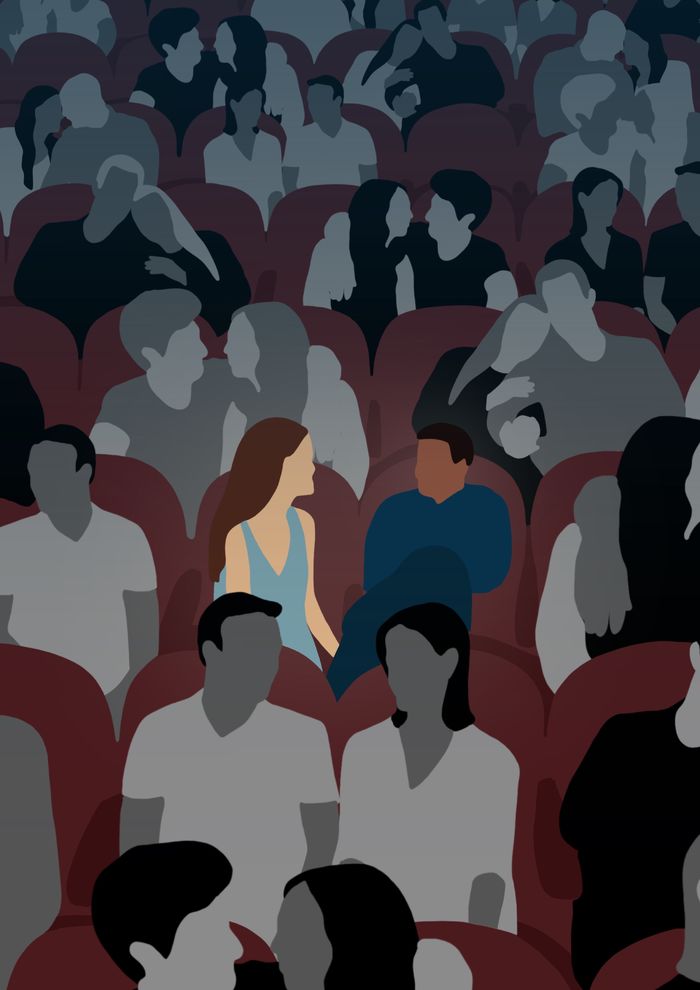The Cambridge Student Survival Guide to Being Ghosted
An anonymous student muses on their experience of being ghosted, hoping to help any other students in the same predicament.

An emphasis on academic learning at Cambridge has sometimes left me stranded when it comes to my emotional growth. How do relationships even work, anyway? How can I reconcile myself to being broken up with, or respond when things aren’t going so well? How do I deal with being ghosted? The last of these in particular has caused me frustration, anxiety and sadness, as well as a certain amount of self-hate. Too many friendly-cum-flirty relationships in which I’d believed there was emotional substance have culminated with deafening silence in my calls log and messenger inbox. I found, however, that the pain of being ghosted doesn’t have to be forever. In fact, the pain is something that I’ve successfully taken steps to alleviate.
"Whatever the message is that you want to get across to another person, it is possible to deliver it clearly, humanely and with respect for the recipient’s feelings."
I’m going to use some lists to describe what I have learnt in this area, in the hopes that I might help someone else out.
List no. 1: things which I have done in response to being ‘ghosted’ which have been helpful to me
- Reached out to friends and family.
- Spent time with people who love me.
- Distracted myself (with films, with work, by spending time exploring a museum).
- Thought about the situation logically and learnt from this: do I want to be close to someone who (a) does not value clear communication and (b) could not see me as a friend if they are no longer interested in a relationship?
- Treated myself (with my favourite meals, with my favourite TV) .
List no. 2: things which I have done in response to being ‘ghosted’ which have not been helpful to me
- Continue kidding myself that it was simply my turn to take the initiative to text the person and that they had not, in fact, lost interest when it was reasonably clear to an outsider that they had.
- Turned up to a place I knew they would be and tried to start a conversation without being clear about why I was there (the reason for me being there being to find out where they were in their thinking about a possible relationship).
- Thought worse of myself. Whose opinion of me do I value more: theirs or mine? (See point 4. of List no. 1).
- Extrapolated, thinking every future relationship blossoming is doomed to end in ghosting. This is not true.
- Stopped looking after myself (stopping exercising, stopped sleeping enough, stopped eating well).
List no. 3: films, TV shows and albums which have lifted me up, stimulated me and helped me to grow in darker times (recent and less recent)
- Moonlight: film (available on Amazon Prime), 2016. The first film with an all-black cast and that is LGBTQ-related to win the Oscar for Best Picture. I found it powerful and stunningly-made.
- Les Intouchables: film (available on YouTube), 2011. Account of friendship between two men of different ages. French film with subtitles; one of the most heartwarming films I saw at school.
- Harry Potter: films (available on YouTube), 2001-2011. Fantasy but with strong ties to reality. Potentially nostalgic, potentially revelatory if you haven’t seen it before. My mum watched it when she was an adult and was hooked.
- Roadkill: TV series (available on BBC iPlayer at the moment). Recent BBC series. Let some politics, investigative journalism and other people’s relationships engross you for a while.
- Jon Batiste, Jazz Is Now: album (Spotify). Jon Batiste’s talent takes me to a different place.
- HAIM, Women in Music Pt. III: album (Spotify, possibly YouTube). Takes me to a place that’s upbeat and chilled-out.
- Bach, Goldberg Variations: album (Spotify and YouTube). Bach, again, takes me to a different place.
"Ghosting has caused me frustration, anxiety and sadness, as well as a certain amount of self-hate."
It has taken me several ‘ghostings’ to build up these lists and to convince myself of the truth of their worth (for me). Something else that I have learnt is that ghosting is considered normal, OK, and the ‘accepted way’ to end things by some people. That may be, but having been on the receiving end and felt its effects on me as a person, I know that I would never ghost someone in the same way. My experiences at university and outside of it have shown me that, whatever the message is that you want to get across to another person, it is possible to deliver it clearly, humanely and with respect for the recipient’s feelings. Even if you think the recipient will not want to hear your message, in my experience, they would prefer to hear it directly than not to hear it at all.
 News / Eight Cambridge researchers awarded €17m in ERC research grants27 December 2025
News / Eight Cambridge researchers awarded €17m in ERC research grants27 December 2025 News / Downing investigates ‘mysterious’ underground burial vault 29 December 2025
News / Downing investigates ‘mysterious’ underground burial vault 29 December 2025 Lifestyle / Ask Auntie Alice29 December 2025
Lifestyle / Ask Auntie Alice29 December 2025 Sport / Hard work, heartbreak and hope: international gymnast Maddie Marshall’s journey 29 December 2025
Sport / Hard work, heartbreak and hope: international gymnast Maddie Marshall’s journey 29 December 2025 Interviews / Meet Juan Michel, Cambridge’s multilingual musician29 December 2025
Interviews / Meet Juan Michel, Cambridge’s multilingual musician29 December 2025










